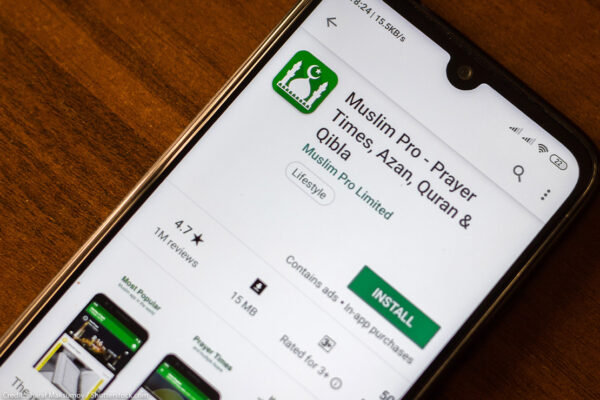We generate droves of personal data every time we use the apps on our phones, make a call, or make an online purchase. While we might hope that our data is kept private, hidden away from people or entities that may want to surveil our usage or capitalize on these private choices, it often isn’t.
In November, news reports revealed that the federal government had purchased location data mined from apps used by Muslims. One of those apps is Muslim Pro, a GPS-reliant app that signals prayer times to its users, which has been downloaded by millions. It’s not yet clear exactly how the data is being used, but many users of the app have already reported deleting it to avoid being surveilled.
“I think I was both shocked and not surprised at the same time,” NowThis journalist Aliya Karim told At Liberty of the moment she learned about the data sale. “Shocked because something as personal as a prayer app kind of felt like it should have been safe from this type of intrusion. But then on the other hand, I wasn’t surprised because it feels like we Muslims are being watched by the government all the time anyway.”
Karim joined At Liberty alongside Tarek Ismail, a senior staff attorney at the CUNY School of Law’s Creating Law Enforcement Accountability and Responsibility (CLEAR) Project. Listen as they discuss the repercussions of this breach of privacy, and what steps organizations like CLEAR and the ACLU are taking to keep private data safe and hold the government accountable.


